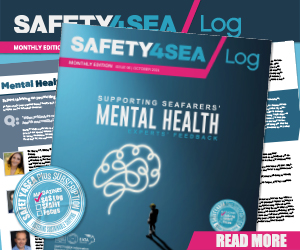A new IMO e-learning course has been launched to support all stakeholders in the maritime supply chain to address wildlife trafficking by ship.
The e-course has been developed by the International Maritime Organization (IMO), in collaboration with the World Maritime University (WMU) and the World Wide Fund for Nature (WWF). The course is based on the IMO’s Revised Guidelines for the Prevention and Suppression of the Smuggling of Wildlife on Ships Engaged in International Maritime Traffic, adopted in April 2024 by the Facilitation Committee.
Through animated e-lessons, quizzes and assignments, the self-paced virtual course covers the concepts of illegal wildlife trade, concealment methods, red flag indicators and the possible measures that each actor in the maritime supply chain can take to help stop this illegal trade.
Illegal wildlife trade poses a severe threat to biodiversity and ecosystems and undermines sustainable development efforts worldwide.
… noted Professor Maximo Q. Mejia, WMU President
Key facts on illegal wildlife trafficking
- Trade in wild animals and plants spans multiple industries, including food, furniture, fashion, healthcare, pets, and zoos.
- Most wildlife trade is legal, governed by national and international laws and agreements.
- Illegal wildlife trade is driven by rising demand and is valued at over $200 billion per year.
- Wildlife trafficking is the fourth-largest illegal trade, following counterfeit products, drugs, and human trafficking.
- Maritime transport is used for most illegal wildlife trade.
- Illegal wildlife trade harms natural ecosystems through overexploitation and threatens biodiversity by introducing non-native species to other countries.
The introductory e-learning course, comprised of five modules, is designed to enhance awareness of the magnitude and consequences of wildlife trafficking in maritime and offers a flexible, accessible, and effective training approach to all stakeholders within the global maritime supply chain. It is targeted at a broad audience and is available to the public, free of charge (from 31 October 2024).
Hiroyuki Yamada, Director of the Maritime Safety Division at IMO, said that the new e-learning course serves as a valuable tool for both public administrations and the private sector.
IMO’s new e-course on IWT will amplify the maritime sector’s contribution to meeting this challenge through knowledge-sharing, and expertly managing evolving and emerging risks in supply chains in support of law enforcement efforts.
… said Tobai Sadayosi, CEO of WWF Japan
Laila Mostafa Abdullatif, Chair of WWF Asia Pacific 25 (AP25), pointed out that, just as animals know no borders, neither should efforts to conserve them. While acknowledging the progress made to tackle illegal wildlife trafficking, she stressed that the work is far from complete. Abdullatif encouraged all stakeholders to leverage the IMO eLearning Course to build education and capacity on the ground, which she believes will strengthen global collaboration and drive impactful, large-scale outcomes to safeguard biodiversity.
The e-course, “Illegal Wildlife Trade – Introduction to Counter Wildlife Trafficking in Maritime Supply Chains” module topics include international conventions and declarations on wildlife trade, common smuggled species and concealment methods, wildlife crime intelligence, port security and measures to prevent, detect and report wildlife trafficking on ships.
To register for the course, visit the course page on IMO’s e-learning platform.


































































